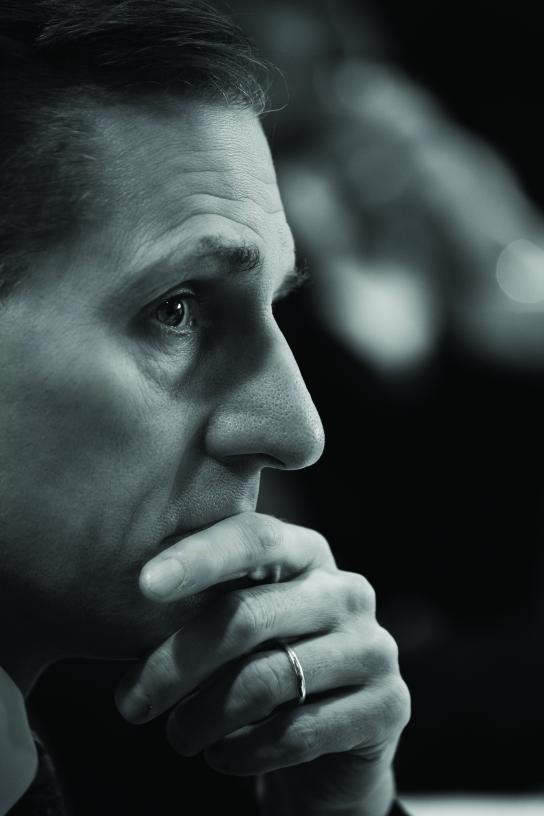Staff Corner: John Hewko
General Secretary and CEO of Rotary International and The Rotary Foundation
Photo Credit Monika Lozinska
In this monthly column, we introduce readers to the talented staff members at Rotary International and The Rotary Foundation, many of whom work behind the scenes at RI headquarters in Evanston, Illinois, and in six offices outside the United States. This month, we feature John Hewko, General Secretary and CEO of Rotary International and The Rotary Foundation.
Holds a law degree from Harvard University, a master’s in modern history from the University of Oxford (where he studied as a Marshall Scholar), and a bachelor’s in government and Soviet studies from Hamilton College in New York
Speaks five languages — English, Portuguese, Russian, Spanish, and Ukrainian
Served as the vice president for operations and compact development at the Millennium Challenge Corporation, a U.S. government agency, where he negotiated foreign assistance agreements totaling $6.3 billion for 18 countries in the areas of infrastructure, agriculture, water and sanitation, health, and education
He and his wife, Marga, are Major Donors to The Rotary Foundation

My parents, Lu and Natalie Hewko, fled the advancing Soviet armies across war-torn Europe — from Ukraine to the refugee camps in southern Germany — and then began a new life in the United States. My desire to give back to the country that welcomed my parents with open arms is what motivated my interest in public service.
My father was a Rotarian and served as president of the Rotary Club of Clarkston, Michigan. He also helped start the Rotary club in Kyiv, Ukraine, where I am a charter member.
The TV series Perry Mason partially inspired me to be a lawyer.
My wife, Marga, is from Argentina, and we got married there in December 1989. Two weeks later, we moved to Moscow. After Mikhail Gorbachev came to power and opened up the Soviet Union, the law firm of Baker McKenzie approached me, asking if I would help establish its office there, and I later served as its managing partner in Kyiv and Prague.
I'll never forget an amazing historic experience in Ukraine. I had the opportunity to be involved in Ukraine's independence movement after the failed August 1991 coup in Moscow and the subsequent collapse of the Soviet Union. In March 1992, I spent several days with experts in Prague and hammered out the initial draft of Ukraine's first post-Soviet constitution. To be there, to help a new country get off the ground, was the thrill of a lifetime.
My Andy Warhol 15 minutes of fame came on 24 August 1991, when the Ukraine parliament called for a referendum to support its declaration of independence. The day before, political leaders and advisers from the non-Communist opposition had prepared a series of important decrees that the parliament was to debate and hopefully approve. But they had no copy machine. Fortunately, I had access to a small copier. I took the documents and spent all night making more than 400 copies. At 7 the next morning, I dashed over and handed the copies to the deputy head of the opposition. Parliament then deliberated over the decrees and declared independence six hours later. Without those copies, I wondered ...
My father was an avid reader of the Rotary magazine. He used to read it from cover to cover. In 2010, an advertisement caught his eye: Rotary was looking for a new general secretary. My father ripped the page out of the magazine and wrote a note on it, half in English and half in Ukrainian, that I should apply for the job — and then he mailed the ad to me.
Two lessons I took away from this experience: Always listen to your dad — and great things happen when you read the Rotary magazine.
In this issue, you should read about Rotary's Action Plan because it represents the future of our organization and serves as our strategic road map. It's exciting, and we have begun to undertake a number of important initiatives to bring it into reality.
One pillar of Rotary's strength is its deep roots in the community. The key is to find that sweet spot — to keep our focus largely local, because that is where members have the greatest satisfaction and sense of accomplishment, yet make sure that these local activities are strategically channeled so that we can have a greater global impact.
